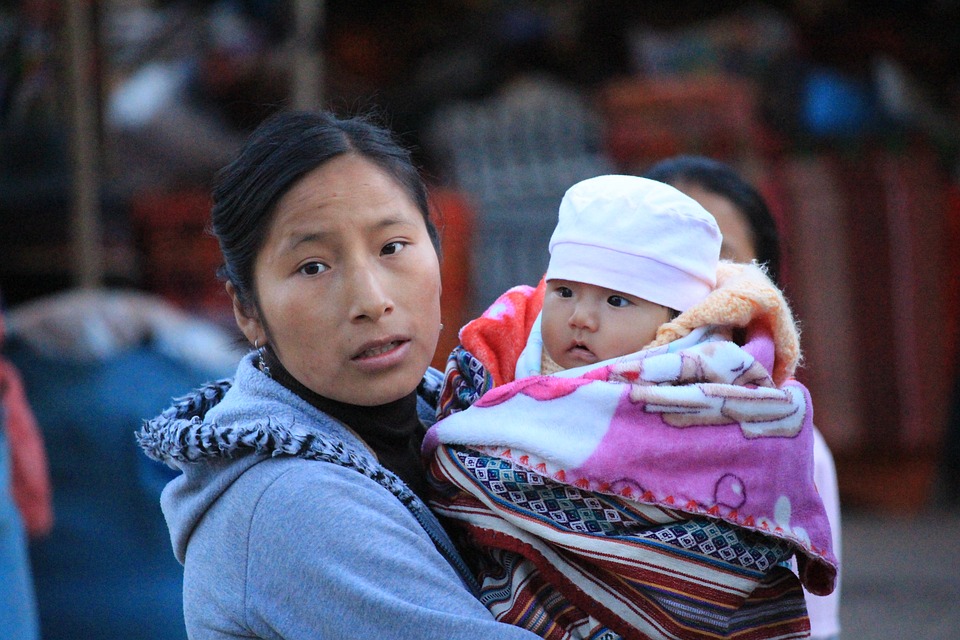29/04/2024
Demands to include women in decisions on the protection of human rights in the climate crisis
In a scientific paper, the researcher from the URV’s Department of Public Law, Susana Borràs, discusses the vulnerability and lack of protection of migrant women and children

In a scientific paper, the researcher from the URV’s Department of Public Law, Susana Borràs, discusses the vulnerability and lack of protection of migrant women and children
Eighty per cent of climatic migrants are women and children. This figure means that a new international legal framework is required to protect human rights by adding gender-sensitive measures to policies and legislation. This is the claim made by Susana Borràs, a researcher from the URV’s Department of Public Law in an article published in the journal Environmental Policy and Law,
in which she discusses the complexities of perpetuating inequalities, vulnerabilities and the lack of protection of migrant women and children.
Climate change is clear evidence that human rights are weakening, especially in areas that are already more exposed to the effects of climate change and less resilient because of the socio-economic context”, says Borràs. “Multidimensional inequality and insecurity are present throughout the migration process and are particularly critical in the case of migrant women and girls”, she adds.
The United Nations estimates that by 2050, the effects of climate change will have caused the displacement of 150 million people or more due to extreme weather and events such as the rise in sea level and desertification. Likewise, the Intergovernmental Panel on Climate Change predicted that, in the coming years, migration would be one of the responses to climate change, with millions of people being displaced by coastal flooding, coastal erosion, desertification processes and losses in agricultural production. “People who leave the lands of their origin do so in highly complex contexts, in search of safety and well-being. They are exercising their human right to migrate with dignity to other safe territories, whether these are inside or outside their countries”, she explains.

In the third decade of the 21st century, humanity is still struggling with the vital issues of gender inequality, discrimination and violence faced by women and girls, that’s to say, almost half of the 8 billion inhabitants of the world. Despite the goals of international human rights and other regulatory instruments to bring about change, on the ground mental attitudes and harsh global realities still work against women and girls.
According to Susana Borràs, “the impacts of climate change mean that women, and especially those from poorer communities, face a great psychological burden. Power structures lead to greater vulnerability to extreme weather events and climate change-related disasters. This structural vulnerability increases when women and girls become climate migrants.
In recent years, changes have been made to some sectors of international regulation to recognise climate change as a cause of migration, including from a gender-sensitive perspective. “Although positive, these changes have demonstrated the lack of an overall vision spanning the international legal regime of migration and refuge, climate change and human rights”, she adds.
In conclusion, she points out that the existing legal frameworks need to be rethought to respond to the reality of climate migration from a gender-sensitive perspective that effectively protects human rights. The heteropatriarchal power dynamics – which exclude women from decision-making processes – have prevented the gender perspective from becoming a part of policies and legal standards for environmental protection. “It is essential to reverse the typical role of victim assigned to women and recognise that they can be leaders and agents of climate change and migratory contexts”. In this regard, she calls for political responses to adapt the existing legal frameworks governing refugees and migration to the humanitarian challenges generated by climate change.
Bibliographical reference: Desai, Bharat H.,10.3233/EPL-239019,environmental-policy-and-law/epl239019,Sun Jan 01 00:00:00 GMT 2023,IOS Press,International Environmental Law (IEL): Perspectives of Women Scholars. DOI: 10.3233/EPL-239019
